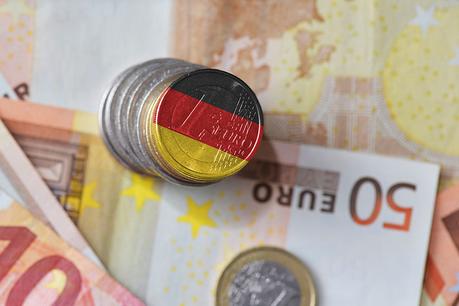Germany boasts some of the worlds most notable electronics and automobile companies and proves a popular destination for those seeking rewarding careers and a good lifestyle. Salaries remain high and expats cite a stable economy, affordable high-quality education and good job security as high ranking attractions.
Germany continues to score highly in the work well index, featuring consistently in the top 10 over many years.
Working in Germany
Germany enjoys some of the lowest unemployment rates in the eurozone reaching a low of 5.8% in spring 2017. A poll taken by the German Federation of Population and Research in 2010/2011 showed that 33% of non-EU migrants sourced work within 12 months of moving to Germany. In more recent times this work void has been filled by migrant influx although, despite this, skilled workers still remain highly sought after.
Germany despite mass migration in 2015 still lacks skilled labor and there remains a number of well-paid opportunities in certain sectors. These sectors include I.T specialist, numerous types of engineers, health and nursing workers and social work, with many of them crying out for skilled labor.
Visa requirements
Those from the European Union, European Economic Area or Switzerland will find very little constraints if considering moving to find work in Germany.
Those from outside of the EU will have to apply for a visa but many nations including US, Australian, Israel, Japan and Canada can perform their application once they have landed.
All other nationals will have to apply beforehand and this will be heavily influenced by skill set, qualifications and the sector you are wishing to work in.
Banking and transferring money to Germany

The German banking system is divided up into three tiers which are the following
- Private banks
- Publicly owned banks
- Credit unions
Private banks count for approximately 200 of the 1800 banks in the German banking system, with publicly-owned banks and credit unions totalling 400 and 1100 respectively.
Germany’s largest banks
Deutsche Bank – founded in 1870 Deutsche now represents itself as one of the leading European banks. It has an extensive reach across the world, with its key revenue driver being its investment banking arm.
Commerzbank – with more of a focus being on retail and business financing service it’s worth considering once or before you move to German. It was also created in 1870 and boasts 17.5 m customers, 49,000 staff and coverage in 50 countries.
KFW Bankgruppe – government-owned Kreditanstalt Fuer Wiederaufbau operates as a promotional bank investing in projects and initiatives to benefit Germany and Europe.
Best banks for those moving to Germany
DKB – offering a free current account and free withdrawals globally the DKB current account proves popular with this that travel a lot and need a cost-effective solution. The account can be opened from outside Germany in anticipation of your arrival.
Comdirect – unlike DKB is only an option once located in Germany. It does, however, offer a handful more services and also has no monthly fee for the current account.
Other notable benefits include
- Online account access (German)
- Online application
- Free customer service account management
- ID acceptance through foreign notaries
Commerzbank – with arguably one of the best national banking coverages in Germany Commerzbank is great for those with local banking needs. The account they offer is free for anyone depositing €1200 or more and they have a network of 9000 ATM’s.
The bank also offers an English speaking 24hr appointment and advice line for those considering using their services.
Once you have a bank in place or at least an appointment made you will likely be considering how to transfer your money to Germany. Many of these banks will offer a straightforward way to transfer your money but are rarely the best option. A specialist provider such as Rational FX, Currencies Direct or Moneycorp for those located in the US can typically save 2-4% on the amount being transferred. They also offer the flexibility of being able to trade by phone, online or via an application at your convenience.
Whilst some will only need a one-off transfer of funds to begin their life in Germany others will be needing to exchange regularly and all three are exceptionally well placed to assist. They offer numerous types of contracts to help with monthly, quarterly or biannual transfer. Allowing clients to lock in rates and protect themselves against adverse FX market volatility.
If you then decide to settle for the long term in Germany and open a business these specialists can also guide you through the currency management of your company, directly helping turnover and your bottom line.
Once the formalities of your move are carefully considered and your bank account and financial experts selected you can enjoy a rewarding stay in Germany.

